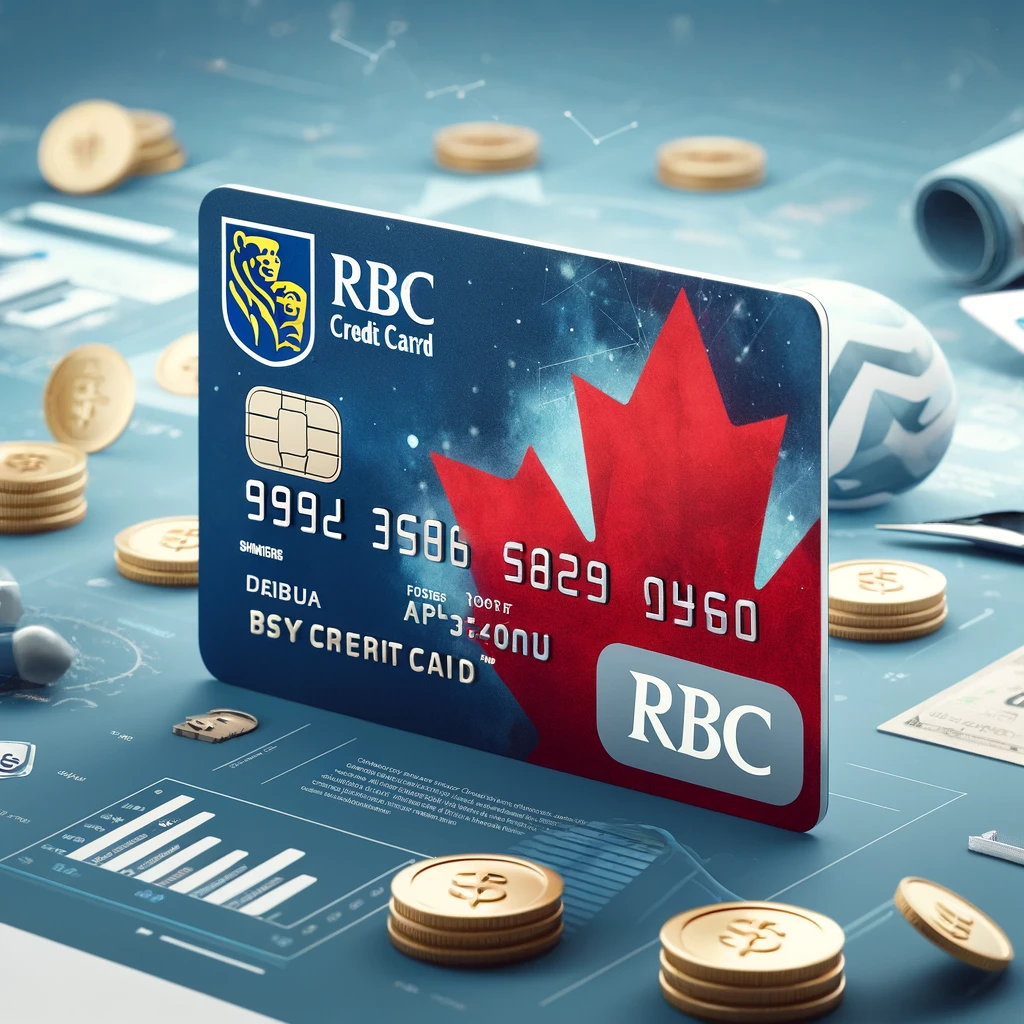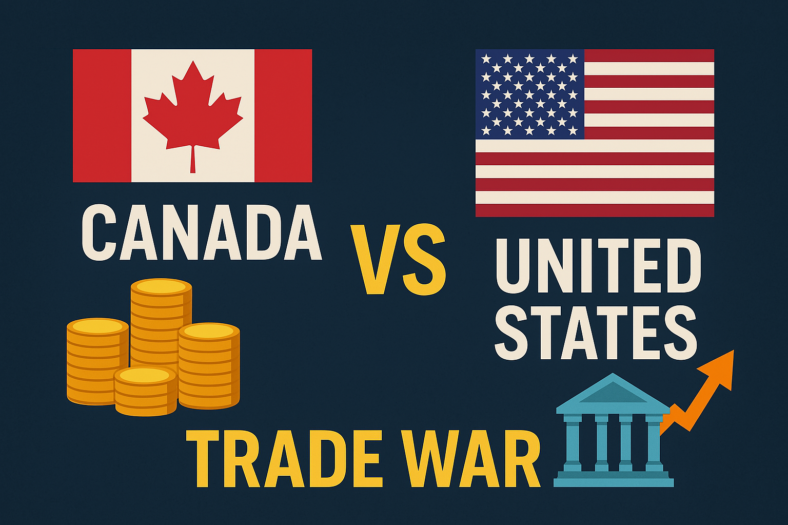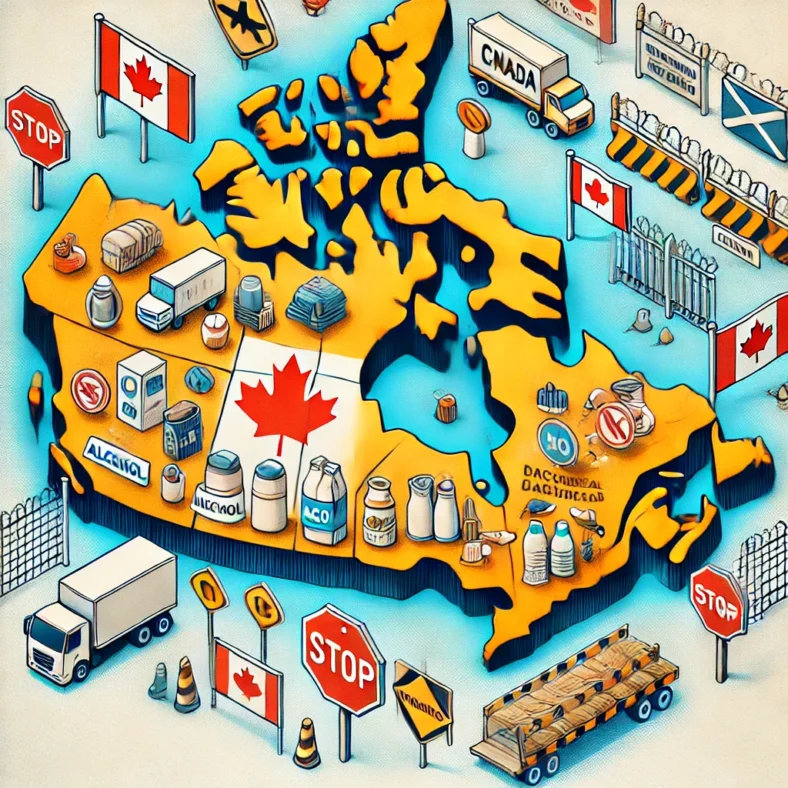This guide aims to provide a comprehensive overview of the best RBC credit cards available in Canada. We’ll delve into each card’s features, benefits, and potential drawbacks, furnishing you with the necessary information to make well-informed decisions. Covering categories such as travel rewards, cashback incentives, low-interest rates, and no annual fees, our analysis ensures there’s an option suitable for every individual.
Best RBC Credit Cards – Editor’s Picks
| Compare | Ratestead Rating | Annual Fee | Annual Rewards | Welcome Bonus | Learn More |
|---|
| APPLY NOW | /10 |
Who are RBC and how do their credit cards work?
RBC, short for Royal Bank of Canada, is one of the largest banks in Canada and is recognized as one of the leading financial institutions globally. Founded in 1864, RBC has established a strong reputation for financial stability, innovation, and customer service excellence. The bank offers a wide range of financial products and services, including personal and commercial banking, wealth management, insurance, and investment banking.
RBC credit cards function similarly to credit cards offered by other financial institutions. Here’s an overview of how RBC credit cards work:
1. Application Process:
- Individuals interested in obtaining an RBC credit card can apply online, in-branch, or over the phone.
- The application typically requires personal information such as name, address, employment details, and annual income.
- RBC evaluates the applicant’s creditworthiness based on factors such as credit history, income, and debt-to-income ratio.
2. Credit Limit:
- Upon approval, RBC assigns a credit limit to the cardholder based on various factors, including credit history, income, and financial obligations.
- The credit limit represents the maximum amount the cardholder can borrow on the card.
3. Card Activation:
- Once approved, the cardholder receives the physical credit card by mail.
- The cardholder must activate the card using the provided instructions, typically by phone or online.
4. Card Usage:
- Cardholders can use their RBC credit cards to make purchases at millions of merchants worldwide where Visa or Mastercard are accepted.
- Each transaction made with the card deducts from the available credit limit.
- Cardholders can also use their credit cards for cash advances at ATMs or financial institutions, though this often comes with additional fees and higher interest rates.
5. Billing Cycle:
- RBC issues a monthly statement detailing all transactions made with the credit card during the billing cycle.
- The statement includes the total amount owed, minimum payment due, transaction details, and any fees or interest charges.
- Cardholders have a grace period, usually around 21 days, to pay the balance in full without incurring interest.
6. Repayment:
- Cardholders can choose to pay the full statement balance or make a minimum payment by the due date.
- Making only the minimum payment results in interest charges on the remaining balance.
- It’s advisable to pay the balance in full to avoid accruing high-interest charges and to maintain a good credit standing.
7. Rewards and Benefits:
- Many RBC credit cards offer rewards programs, allowing cardholders to earn points, miles, or cashback on eligible purchases.
- These rewards can be redeemed for travel, merchandise, gift cards, statement credits, and more.
- RBC credit cards often come with additional benefits such as travel insurance, purchase protection, extended warranties, and access to exclusive events and experiences.
8. Fees and Charges:
- RBC credit cards may have annual fees, foreign transaction fees, cash advance fees, and late payment fees.
- It’s essential for cardholders to review the terms and conditions of their specific credit card to understand all applicable fees.
Overall, RBC credit cards provide a convenient and flexible payment option for individuals, offering a range of features, rewards, and benefits tailored to different financial needs and lifestyles. However, it’s crucial for cardholders to use their credit cards responsibly, managing spending and payments to avoid accumulating debt and maintain a positive credit history.
Pros and cons of RBC credit cards
RBC credit cards offer a range of benefits and features tailored to different financial needs and lifestyles. Here are the pros and cons of using RBC credit cards:
Pros:
Wide Range of Options: RBC offers a diverse selection of credit cards, including travel rewards, cashback, low-interest, and no annual fee cards, providing choices to suit various preferences and spending habits.
Rewards Programs: Many RBC credit cards come with rewards programs that allow cardholders to earn points, miles, or cashback on eligible purchases. These rewards can be redeemed for travel, merchandise, gift cards, statement credits, and more, providing value for cardholders’ spending.
Comprehensive Benefits: RBC credit cards often come with additional benefits such as travel insurance, purchase protection, extended warranties, and access to exclusive events and experiences, enhancing the overall cardholder experience and providing peace of mind.
Global Acceptance: RBC credit cards are widely accepted both domestically and internationally, making them convenient for travelers and individuals who make purchases from global merchants.
Innovative Features: RBC continually introduces innovative features to enhance the user experience, such as mobile payment options, advanced security measures, and personalized financial tools, ensuring that cardholders have access to cutting-edge banking solutions.
Customer Support: RBC is known for its excellent customer service, providing robust support to cardholders, including assistance with account inquiries, card replacements, and dispute resolutions, contributing to overall customer satisfaction.
Cons:
Annual Fees: Some RBC credit cards come with annual fees, which can range from moderate to high depending on the card’s benefits and features. While these fees may be justified by the rewards and benefits offered, they can still represent an additional cost for cardholders.
Interest Rates: If cardholders carry a balance on their RBC credit cards, they may incur high-interest charges, especially on purchases and cash advances. It’s essential for cardholders to understand the interest rates associated with their cards and to pay off balances in full to avoid accruing interest.
Foreign Transaction Fees: RBC credit cards may charge foreign transaction fees for purchases made in foreign currencies, typically around 2.5% of the transaction amount. These fees can add up, especially for frequent international travelers, reducing the overall value of using the card abroad.
Credit Requirements: Some of the premium RBC credit cards may have stringent eligibility criteria, including high credit scores and income requirements. This may limit access to certain cards for individuals with less-than-perfect credit histories or lower incomes.
Limited Acceptance of Specialty Cards: While RBC offers specialty credit cards tailored to specific interests or affiliations, such as student cards or co-branded cards with partner organizations, the acceptance of these cards may be limited compared to mainstream credit cards like Visa or Mastercard.
Potential for Debt Accumulation: Like all credit cards, RBC credit cards carry the risk of debt accumulation if not used responsibly. Cardholders who overspend or fail to make timely payments may find themselves in debt, negatively impacting their credit score and financial well-being.
Overall, RBC credit cards offer a range of benefits and features that can enhance the financial management and lifestyle of cardholders. However, it’s essential for individuals to carefully consider the pros and cons of each card and to use their credit cards responsibly to maximize the benefits and avoid potential drawbacks.
Types of RBC credit cards
RBC offers a diverse range of credit cards in Canada, each tailored to different financial needs, lifestyles, and preferences. Here are the main types of RBC credit cards available:
Travel Rewards Credit Cards: These cards are designed for frequent travelers and offer rewards such as points or miles that can be redeemed for flights, hotels, car rentals, and other travel-related expenses. Travel rewards cards may also come with additional perks like travel insurance, airport lounge access, and concierge services.
Cashback Credit Cards: Cashback credit cards provide cardholders with a percentage of their spending back as cash rewards. These cards are popular among individuals who want to earn rewards on their everyday purchases, such as groceries, gas, and dining out.
Low-Interest Credit Cards: Low-interest credit cards are suitable for individuals who may carry a balance on their credit card and want to minimize interest charges. These cards offer lower annual percentage rates (APRs) compared to standard credit cards, making them an attractive option for budget-conscious consumers.
No Annual Fee Credit Cards: No annual fee credit cards provide valuable benefits and rewards without the cost of an annual fee. These cards are ideal for individuals who want to enjoy the perks of a credit card without the added expense.
Credit Building Credit Cards: Credit building credit cards are designed for individuals who are looking to establish or rebuild their credit history. These cards typically have lower credit limits and may require a security deposit, but they offer features and benefits that can help improve credit scores over time.
Business Credit Cards: RBC also offers credit cards specifically designed for small business owners and entrepreneurs. These cards come with features tailored to business expenses, such as rewards on office supplies, travel, and advertising, as well as expense tracking and reporting tools.
Specialty Credit Cards: RBC offers specialty credit cards that cater to specific interests or affiliations, such as student cards, co-branded cards with partner organizations, and affinity cards that support charitable causes or sports teams.
Each type of RBC credit card comes with its own set of features, benefits, rewards, and eligibility criteria. By understanding the different types of credit cards available, consumers can choose the card that best fits their financial goals and lifestyle preferences.
How to find and choose the best RBC credit cards in Canada
Finding and choosing the best RBC credit card in Canada requires careful consideration of your financial needs, spending habits, and lifestyle preferences. Here’s a step-by-step guide to help you identify and select the right RBC credit card for you:
1. Assess Your Financial Needs:
Consider Your Spending Habits: Determine where you spend the most money each month, such as groceries, gas, travel, or dining out. This will help you prioritize rewards categories that align with your spending.
Evaluate Your Goals: Decide what you want to get out of a credit card. Are you looking to earn travel rewards, cashback, or build your credit history? Understanding your goals will narrow down your options.
2. Research RBC Credit Card Options:
Visit RBC’s Website: Explore RBC’s website to view their current lineup of credit cards. You can filter cards based on categories like rewards, annual fees, and benefits to narrow down your choices.
Compare Features and Benefits: Review the features, benefits, rewards, and fees associated with each credit card option. Pay attention to details such as rewards rates, welcome bonuses, annual fees, interest rates, and additional perks like travel insurance and purchase protection.
3. Consider Your Eligibility:
Check Eligibility Requirements: Review the eligibility criteria for each credit card to ensure you meet the minimum requirements. Factors such as credit score, income level, and employment status may impact your eligibility for certain cards.
Assess Credit Limit Needs: Consider your spending habits and determine the appropriate credit limit for your needs. Some cards offer higher credit limits than others, so choose one that aligns with your budget and financial responsibilities.
4. Evaluate Rewards and Redemption Options:
Understand Rewards Programs: If you’re interested in earning rewards, carefully review the rewards program associated with each credit card. Consider factors such as earning rates, redemption options, point expiry policies, and any restrictions or blackout dates.
Assess Redemption Flexibility: Determine how flexible the redemption options are and whether they align with your preferences. Some cards offer versatile redemption options, while others may have limitations or restrictions on how you can use your rewards.
5. Review Additional Benefits and Features:
Consider Additional Perks: Look beyond rewards and assess the additional benefits and features offered by each credit card. This may include travel insurance, purchase protection, extended warranties, airport lounge access, concierge services, and more.
Evaluate Annual Fees: Compare the annual fees associated with each credit card option and determine whether the benefits outweigh the costs. Some cards offer premium benefits that justify higher annual fees, while others may have no annual fee at all.
6. Read Reviews and Seek Recommendations:
Read Customer Reviews: Look for reviews and testimonials from existing cardholders to get insights into their experiences with different RBC credit cards. Pay attention to factors like customer service, usability, and overall satisfaction.
Seek Recommendations: Reach out to friends, family members, or financial advisors who have experience with RBC credit cards. They can provide valuable recommendations based on their own experiences and insights.
7. Apply for Your Chosen Card:
Submit Your Application: Once you’ve chosen the best RBC credit card for your needs, complete the online application process or visit an RBC branch to apply in person. Be prepared to provide personal information, such as your name, address, employment details, and income.
Review Terms and Conditions: Before submitting your application, carefully review the terms and conditions associated with the credit card to ensure you understand the fees, interest rates, rewards program details, and any other important information.
By following these steps and conducting thorough research, you can find and choose the best RBC credit card that aligns with your financial goals and lifestyle preferences. Remember to use your credit card responsibly, make timely payments, and take advantage of the rewards and benefits to maximize its value.
How to apply for a RBC credit card in Canada
Applying for an RBC credit card in Canada is a straightforward process that can be done online, over the phone, or in person at an RBC branch. Here’s a step-by-step guide on how to apply:
1. Research RBC Credit Card Options:
- Visit the RBC website or contact RBC customer service to explore the available credit card options.
- Compare the features, benefits, rewards programs, fees, and eligibility criteria of different credit cards to find the one that best suits your financial needs and lifestyle.
2. Check Your Eligibility:
- Review the eligibility requirements for the credit card you’re interested in. This may include factors such as minimum age, Canadian residency status, employment status, and minimum income requirements.
- Ensure that you meet the eligibility criteria before proceeding with the application.
3. Gather Required Information:
- Before applying, gather the necessary information and documents that may be required for the application process. This may include:
- Personal information: Name, address, date of birth, social insurance number (SIN).
- Contact information: Phone number, email address.
- Employment details: Employer’s name, job title, annual income.
- Financial information: Monthly housing costs, assets, liabilities, banking information.
4. Choose Your Application Method:
- Online: Visit the RBC website and navigate to the page of the credit card you wish to apply for. Click on the “Apply Now” button and follow the instructions to complete the online application form.
- Phone: Call RBC’s customer service hotline and speak to a representative who can assist you with the application process over the phone.
- In Person: Visit an RBC branch near you and speak to a representative who can help you with the application process in person.
5. Complete the Application Form:
- Fill out the credit card application form accurately and completely with all the required information.
- Double-check the information entered to ensure accuracy and completeness before submitting the application.
6. Review Terms and Conditions:
- Carefully review the terms and conditions associated with the credit card, including interest rates, fees, rewards programs, and any additional benefits or features.
- Make sure you understand the terms and conditions before proceeding with the application.
7. Submit the Application:
- Once you have completed the application form and reviewed the terms and conditions, submit the application online, over the phone, or in person at an RBC branch.
- If applying online, you may receive an instant decision on your application. If applying by phone or in person, you may need to wait for a response from RBC after they have reviewed your application.
8. Wait for Approval:
- After submitting your application, wait for RBC to review and process your application.
- If your application is approved, you will receive your new credit card by mail within a few business days, along with any relevant disclosures and agreements.
- If your application is declined, RBC will provide you with the reasons for the decision and any next steps you can take.
By following these steps and completing the application process accurately and thoroughly, you can apply for an RBC credit card in Canada with ease. Remember to use your credit card responsibly and manage your finances wisely to make the most of your new credit card.
What is credit score and how much do I need for a RBC credit card
A credit score is a numerical representation of an individual’s creditworthiness, which indicates their likelihood of repaying borrowed money. It is calculated based on various factors from a person’s credit history and is used by lenders, such as banks and credit card companies, to assess the risk of extending credit to an individual. In Canada, credit scores typically range from 300 to 900, with higher scores indicating better creditworthiness.
Key factors that influence a credit score include:
Payment History: Whether you have paid your bills on time and in full.
Credit Utilization: The amount of credit you are currently using compared to your total available credit limits.
Length of Credit History: The length of time you have been using credit.
Types of Credit: The mix of credit accounts you have, such as credit cards, loans, and mortgages.
New Credit Applications: The number of recent inquiries or applications for credit.
RBC, like other financial institutions, considers credit scores when evaluating credit card applications. While there is no specific credit score requirement published by RBC for their credit cards, generally, the higher your credit score, the better your chances of being approved for a credit card with favorable terms, higher credit limits, and better rewards.
It’s essential to note that credit score requirements may vary depending on the specific credit card you’re applying for, as well as other factors such as income, employment status, and existing debt obligations. Additionally, even if your credit score meets the minimum requirements, approval for a credit card is not guaranteed, as lenders consider various factors when making lending decisions.
To increase your chances of being approved for an RBC credit card, it’s advisable to maintain a good credit history by paying your bills on time, keeping your credit card balances low, avoiding opening multiple new accounts in a short period, and regularly monitoring your credit report for errors or discrepancies. If you have concerns about your credit score or eligibility for a specific credit card, you can contact RBC directly to inquire about their criteria and seek guidance on the application process.
Common interest rates, fees and costs for RBC credit cards in Canada
Interest rates, fees, and costs associated with RBC credit cards in Canada can vary depending on the specific card you choose, as well as your creditworthiness and other factors. However, here are some common interest rates, fees, and costs that you may encounter with RBC credit cards:
Interest Rates:
Purchase APR: The annual percentage rate (APR) charged on purchases made with the credit card. This rate can vary depending on the card and may be lower for certain promotional periods.
Cash Advance APR: The APR charged on cash advances taken from the credit card, typically higher than the purchase APR and often with no grace period, meaning interest accrues immediately.
Balance Transfer APR: The APR charged on balances transferred from other credit cards to the RBC credit card. This rate may vary and may also be lower for promotional periods.
Fees:
Annual Fee: Many RBC credit cards charge an annual fee for card membership. The amount of the fee can vary depending on the card’s benefits and features, ranging from no annual fee to several hundred dollars per year for premium cards.
Foreign Transaction Fee: A fee charged for transactions made in foreign currencies. This fee is typically around 2.5% of the transaction amount and applies to purchases made outside of Canada or in a currency other than Canadian dollars.
Cash Advance Fee: A fee charged for cash advances taken from the credit card. This fee is typically a percentage of the cash advance amount or a flat fee, whichever is greater.
Balance Transfer Fee: A fee charged for transferring balances from other credit cards to the RBC credit card. This fee is typically a percentage of the balance transferred or a flat fee, whichever is greater.
Late Payment Fee: A fee charged for late or missed payments. This fee can vary depending on the card and the amount of the late payment.
Overlimit Fee: A fee charged if you exceed your credit limit. This fee may apply each time you exceed your limit or on a monthly basis if your account remains over the limit.
Other Costs:
Interest Charges: If you carry a balance on your credit card from month to month, you will incur interest charges based on the applicable APRs for purchases, cash advances, and balance transfers.
Additional Cardholder Fee: Some RBC credit cards may charge a fee for adding additional authorized users to the account.
Returned Payment Fee: A fee charged if a payment is returned or rejected, typically due to insufficient funds or a closed account.
It’s essential to review the terms and conditions of any RBC credit card you’re considering to understand the specific interest rates, fees, and costs associated with the card. Additionally, keep in mind that certain fees, such as annual fees and foreign transaction fees, may be offset by the card’s benefits and rewards, so consider the overall value proposition of the card when making your decision.
Alternatives to RBC credit cards
There are several alternatives to RBC credit cards available in Canada, offered by other banks and financial institutions. These alternatives may offer different features, benefits, rewards programs, and fees, allowing consumers to choose a credit card that best fits their financial needs and lifestyle preferences. Here are some popular alternatives to RBC credit cards:
1. TD Credit Cards:
- TD Bank offers a range of credit cards with various rewards programs, including travel rewards, cashback, and flexible points programs. TD credit cards often come with perks such as travel insurance, purchase protection, and exclusive benefits for TD customers.
2. Scotiabank Credit Cards:
- Scotiabank provides credit cards with rewards programs tailored to different preferences, such as travel rewards, cashback, and rewards for everyday purchases. Scotiabank credit cards may also offer perks like airport lounge access, concierge services, and special promotions.
3. CIBC Credit Cards:
- CIBC offers a variety of credit cards with rewards programs, including travel rewards, cashback, and points-based programs. CIBC credit cards may come with benefits such as travel insurance, rental car coverage, and extended warranties on purchases.
4. BMO Credit Cards:
- BMO Bank of Montreal provides credit cards with rewards programs, including travel rewards, cashback, and points-based programs. BMO credit cards may offer perks such as roadside assistance, travel insurance, and purchase protection.
5. American Express Credit Cards:
- American Express offers a range of credit cards with rewards programs, including travel rewards, cashback, and membership rewards. American Express credit cards often come with premium benefits such as airport lounge access, travel credits, and concierge services.
6. Tangerine Credit Cards:
- Tangerine Bank offers credit cards with cashback rewards on everyday purchases. Tangerine credit cards allow cardholders to choose their own cashback categories and may also come with benefits like purchase assurance and extended warranty coverage.
7. Desjardins Credit Cards:
- Desjardins offers credit cards with rewards programs, including travel rewards, cashback, and points-based programs. Desjardins credit cards may provide benefits such as travel insurance, mobile device insurance, and identity theft assistance.
8. National Bank Credit Cards:
- National Bank of Canada provides credit cards with rewards programs, including travel rewards, cashback, and points-based programs. National Bank credit cards may offer benefits such as travel insurance, roadside assistance, and exclusive discounts.
These are just a few examples of alternatives to RBC credit cards available in Canada. When choosing a credit card, it’s essential to consider factors such as rewards programs, fees, interest rates, and additional benefits to find the card that best suits your needs and preferences. Additionally, be sure to review the terms and conditions of each credit card to understand all applicable fees and benefits before making your decision.
FAQs about the best RBC credit cards in Canada
RBC offers several credit cards tailored to travel rewards, including the RBC Avion Visa Infinite, RBC Avion Visa Infinite Privilege, and RBC British Airways Visa Infinite. These cards typically offer generous rewards on travel-related purchases and come with additional benefits such as travel insurance and airport lounge access.
The RBC Cash Back Mastercard is one of the top choices for cashback rewards, offering cashback on eligible purchases with no annual fee. The RBC Cash Back Preferred World Elite Mastercard is another option for higher cashback rates and additional perks, though it comes with an annual fee.
RBC offers several credit cards with no annual fee, including the RBC Cash Back Mastercard, RBC Rewards+ Visa, and RBC Visa Classic Low Rate Option. These cards provide valuable benefits and rewards without the cost of an annual fee.
With RBC credit cards, you can earn rewards by making purchases using your card. Depending on the card, you may earn points, miles, or cashback on eligible purchases. You can redeem your rewards for a variety of options, including travel, merchandise, gift cards, statement credits, and more, through RBC’s rewards program.
RBC credit cards come with a range of additional benefits, including travel insurance, purchase protection, extended warranties, concierge services, and exclusive access to events and experiences. The specific benefits vary depending on the card, so be sure to review the terms and conditions for details.
You can apply for an RBC credit card online through the RBC website, over the phone by calling RBC’s customer service hotline, or in person at an RBC branch. To apply, you’ll need to provide personal information such as your name, address, employment details, and annual income.
While there is no specific credit score requirement published by RBC for their credit cards, generally, a higher credit score increases your chances of approval and may qualify you for better terms and rewards. However, eligibility criteria may vary depending on the specific card and other factors such as income and employment status.
In conclusion, RBC credit cards offer a wide range of options designed to meet the diverse financial needs and lifestyle preferences of consumers in Canada. Whether you’re looking for travel rewards, cashback incentives, low-interest rates, or no annual fees, RBC has a credit card to suit your requirements. With robust rewards programs, valuable benefits, and innovative features, RBC credit cards provide cardholders with flexibility, convenience, and peace of mind in managing their finances.
While exploring the best RBC credit cards in Canada, it’s essential to consider factors such as rewards programs, fees, interest rates, and additional benefits to find the card that aligns with your financial goals and spending habits. By understanding the features and terms of each credit card, you can make informed decisions to maximize the value of your RBC credit card and enhance your overall banking experience.
Whether you’re a frequent traveler, savvy shopper, or focused on building credit, RBC offers credit card solutions tailored to your needs. With exceptional customer service, innovative banking solutions, and a commitment to excellence, RBC continues to be a trusted partner in helping Canadians achieve their financial goals and aspirations through their credit card offerings.




















